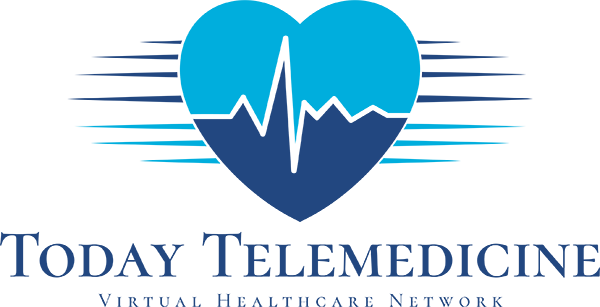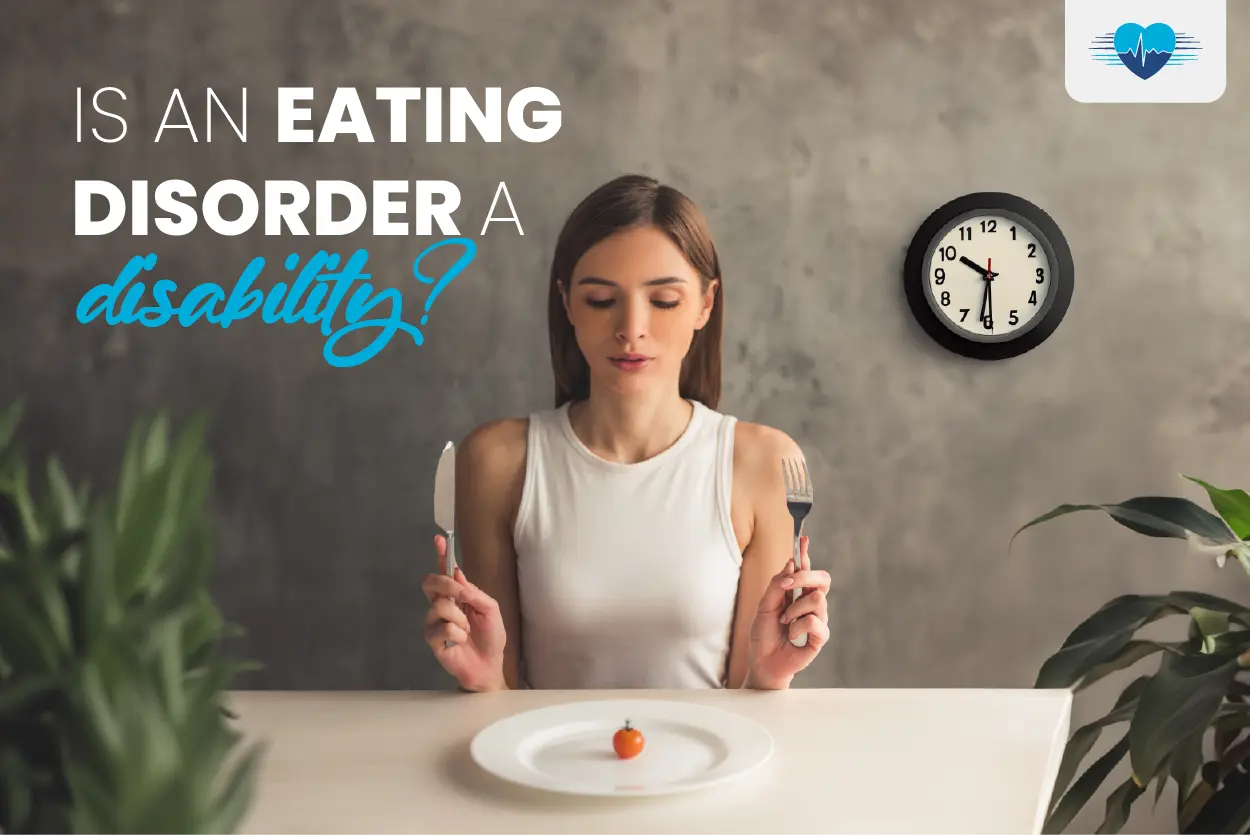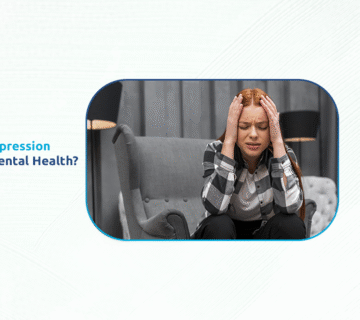In the midst of battling the issue of eating disorders, some people find themselves pondering a critical question with far-reaching implications for their health, legal rights, and personal identity: Is an eating disorder a disability?
The answer isn’t black and white, and the implications of such a classification are huge.
This blog post is for anybody who wants to understand the relationship between eating disorders and disability.
It is intended for anyone with disordered eating symptoms who may be searching for answers in the midst of confusion.
We will explore this issue from different angles, define it from various perspectives and bring out its implications.
Eating Disorders and Their Impact
Before we begin the debate, it’s essential to establish a foundational understanding of eating disorders and their impact.
Eating disorders, defined as abnormal eating habits that negatively affect a person’s physical or mental health, are complicated conditions.
Anorexia nervosa, bulimia nervosa, and binge-eating disorder are well-recognized under this umbrella, as well as other specified feeding or eating disorders (OSFED), and unspecified feeding or eating disorders (UFED).
Many challenges confront those with eating disorders, among them
- Psychological Burnout: Dysfunctional views and practices about food, body image, and self-worth.
- Physical Health Complications: Starvation, bingeing, purging, and other disordered eating activities have serious health repercussions.
- Social and Emotional Challenges: Isolation, shame, and difficulty in maintaining relationships can be common.
The day-to-day reality for people with eating disorders is an exhausting and unrelenting struggle against a disorder that affects every part of their lives.
Defining Disability in Context
Legal
In a legal context, the definition of a disability has important consequences.
The Americans with Disabilities Act (ADA), for example, defines disability as a mental or physical impairment that substantially limits one or more major life activities.
This legal framework provides protection against discrimination and the right to access accommodations and support.
Social
From a social perspective, disability encompasses a wide range of impairments that can affect participation in society.
It’s a phrase that relates to identity, community, and advocacy, affecting policies as well as societal attitudes.
Medical
On the other side within medical context, disability mostly describes the limitations that people encounter due to their health conditions.
This perspective highlights impacts of medicine and the need for interventions to minimize such restrictions.
The Big Question: Is an Eating Disorder a Disability?
Eating disorders do substantially limit major life activities—they can distort one’s relationship with food to the point of interfering with daily functioning, they negatively affect mental health, and can cause a variety of physical health complications.
Anorexia, bulimia, binge eating disorder, and other specified feeding or eating disorders (OSFED) can dictate a person’s thoughts and behaviors, often at the expense of their well-being.
These can make it impossible for one to learn or work, take part in social activities and maintain personal relationships.
Indeed considering these effects, especially when they have become severe, one could say that eating disorders fit into the legal as well as social definition of a disability.
The Implications of Classification
Labeling eating disorders as disabilities can really affect how people experience them and the kind of support they receive.
Access to Accommodations and Support
If recognized as disabilities, eating disorders could afford people the right to accommodations in the workplace, at school, and in other areas of life.
This could translate to more opportunities for support and reasonable adjustments to help manage their condition.
Social Stigma and Identity
On a social level, the labeling of eating disorders as disabilities may influence public understanding and stigma.
While it could provide a framework for empathy and support, there’s also the risk of further stigmatizing individuals with these conditions.
Personal Identity
For the person, the definition of their eating disorder shapes their own self-identity.
Being labeled as having a disability may be validating for some, while for others, it may not resonate with their experience or goals for recovery.
Voices from the Eating Disorder Community
What do those directly impacted by eating disorders, like those in recovery, have to say? Their experiences and insights are crucial in this dialogue.
Many in the eating disorder community express a desire for validation of their struggles.
Being recognized as having a disability could symbolize an acknowledgment of the barriers they face and a need for customized support.
Simultaneously, there’s a recognition of the complexity inherent in this conversation.
A person’s identity is deeply personal, and not everyone with an eating disorder wishes to adopt a disability label.
A common thread is the aspiration for recovery and the determination to not be defined solely by a diagnosis.
There’s a resolute wish to not have one’s potential and future dictated by a label that may carry its own baggage.
Practical Advice for Those With Eating Disorders
Eating disorders are hard to deal with, no matter what the label says. Here are some tips:
1. Know Your Rights
Whether or not your eating disorder is classified as a disability, it’s essential to understand your rights and seek out available support and accommodations.
2. Seek Professional Help
Working with a qualified healthcare professional is pivotal.
Therapists, dietitians specializing in eating disorders, and medical doctors can provide personalized treatment and support.
3. Engage With the Community
Connecting with others who understand your experience can be incredibly validating.
Support groups and advocacy organizations offer resources and a sense of community.
Resources for Support and Information
For those looking for additional support and information, various resources are available:
- National Eating Disorders Association (NEDA) provides education, support, and advocacy for those affected by eating disorders.
In Conclusion: It’s About Support and Understanding
The question of whether an eating disorder is a disability is complex.
It intersects legal, social, and personal domains, carrying with it a host of implications.
What’s clear is that the most critical aspect is support and understanding.
Regardless of the label, individuals with eating disorders require compassionate and comprehensive care to manage their condition and pursue a fulfilling life.
Simply put, we should continue talking about it, valuing diverse opinions, noting that community around the disorder encompasses many experiences..
By so doing, we shall create such an environment that supports all people living with these little-understood conditions.
For treatment and additional resources, please contact us at Today Telemedicine.
FAQs
Is anorexia a disability?
Yes anorexia can qualify as a disability if it severely impairs normal life activities.
Is eating disorder a disability?
Eating disorders can be considered disabilities if they markedly limit one or more major life activities.
What is extreme eating?
Extreme eating involves consuming food in a way that is far outside cultural norms, putting one’s health at risk.
What are eating disorder thoughts?
Eating disorder thoughts revolve around obsession with food, weight and body shape.
What are anorexia subtypes?
Anorexia subtypes include restrictive type where people severely limit their food intake and binge-purge type where people eat excessively and then induce vomiting.
Are eating disorders a choice?
No eating disorders are mental health conditions and not a matter of choice.
How to know if I have an ED?
If you’re excessively preoccupied with food, weight, and body image in a way that impacts your life then you might have an eating disorder.
Professional assessment is recommended.
How do the terms eating disorder and disordered eating compare?
Eating disorders are mental health conditions that can be diagnosed with specific criteria.
Disordered eating refers to irregular eating behaviors that might not fully meet the criteria for an eating disorder.
Anorexic people use food as a means of
Control and coping, sometimes involving food restriction or manipulation to have a grip on their lives and deal with emotional distress.





